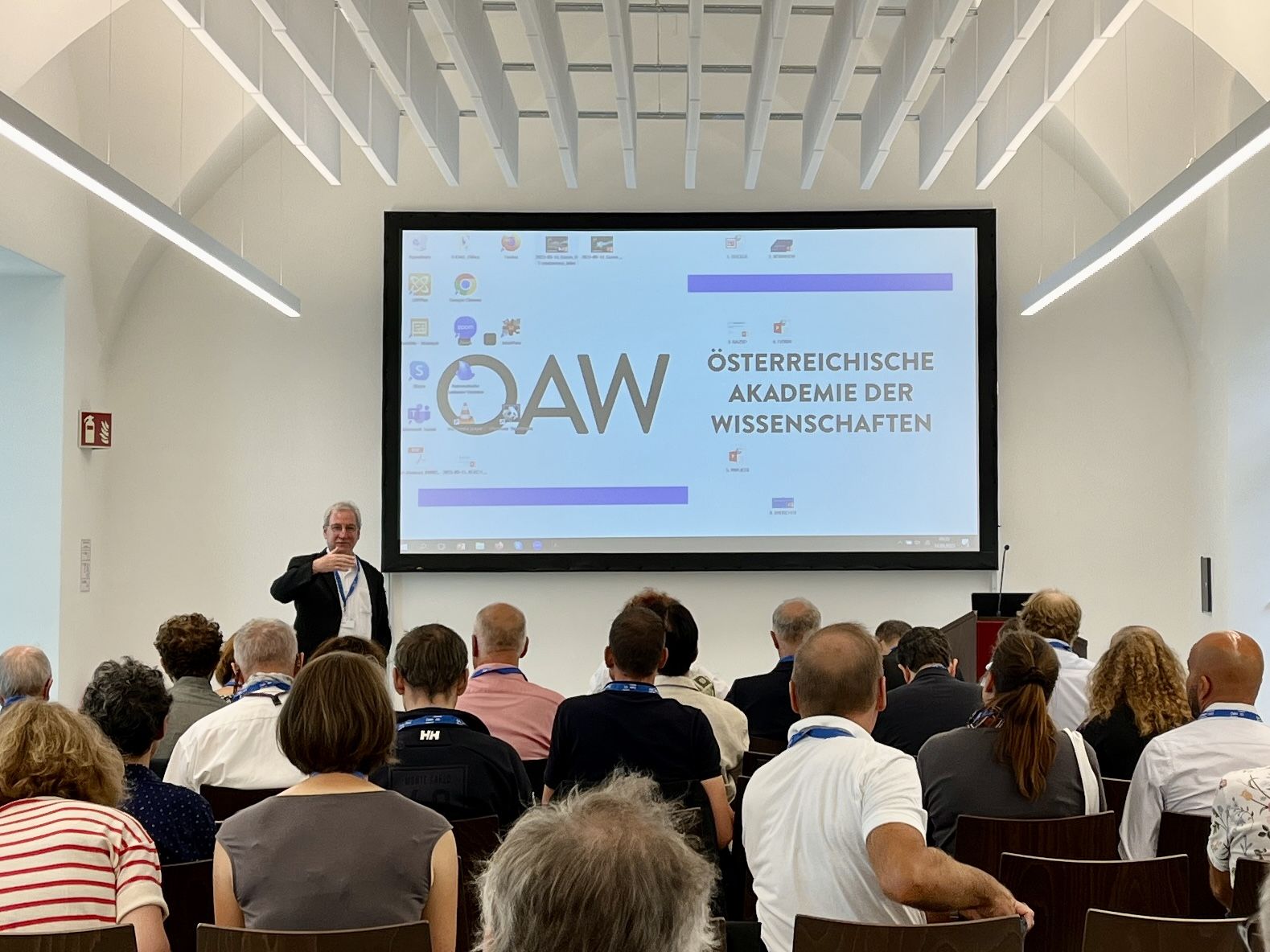About 80 guests were invited to the arcade courtyard of the recently opened ÖAW campus to exchange views on sustainable development from the TA perspective and its role in policy advice.
In his keynote, Michael Decker from KIT-ITAS Karlsruhe gave a brief insight into the basics of technology assessment, its global development and the ambivalent impact of new technologies on society. There has always been a light as well as a dark side to the consideration of new innovations. His appeal to a sustainable development: "Technology as well as societal processes and structures must be aligned in such a way that both ethical principles are guaranteed: to enable present generations to meet their needs without creating risks for meeting the needs of future generations."
Currently, the OECD also has a noticeable presence in the NanoTrust project. NanoTrust has been an active member of the Working Group on Nanotechnology, Biotechnology and Converging Technologies (BNCT) for several years. Douglas K.R. Robinson explains in his keynote why the OECD is exploring strategic intelligence and new requirements for TA tools and practices.
Risk researcher André Gazsó, project leader and senior researcher at the Institute of Technology Assessment (ITA) of the Austrian Academy of Sciences, reflects on 15 years of NanoTrust, which has evolved from a classical research project into a complex process within the framework of Austrian nano-risk governance: "They were exciting years that we went through in a total of six project phases. The term advanced materials did not exist at the beginning in 2007. The perspective of the steakholders and the accompanying changes in policy advice have also changed over the years," Gazsó knows.
Advanced materials are materials with new properties and functionalities that are developed for specific purposes and can be used in many areas. Nanomaterials continue to be an important group within them. Gazso: "Tonight we can celebrate 15 successful years and hope that the topic will be taken up by more institutions in the future and that research will continue."



